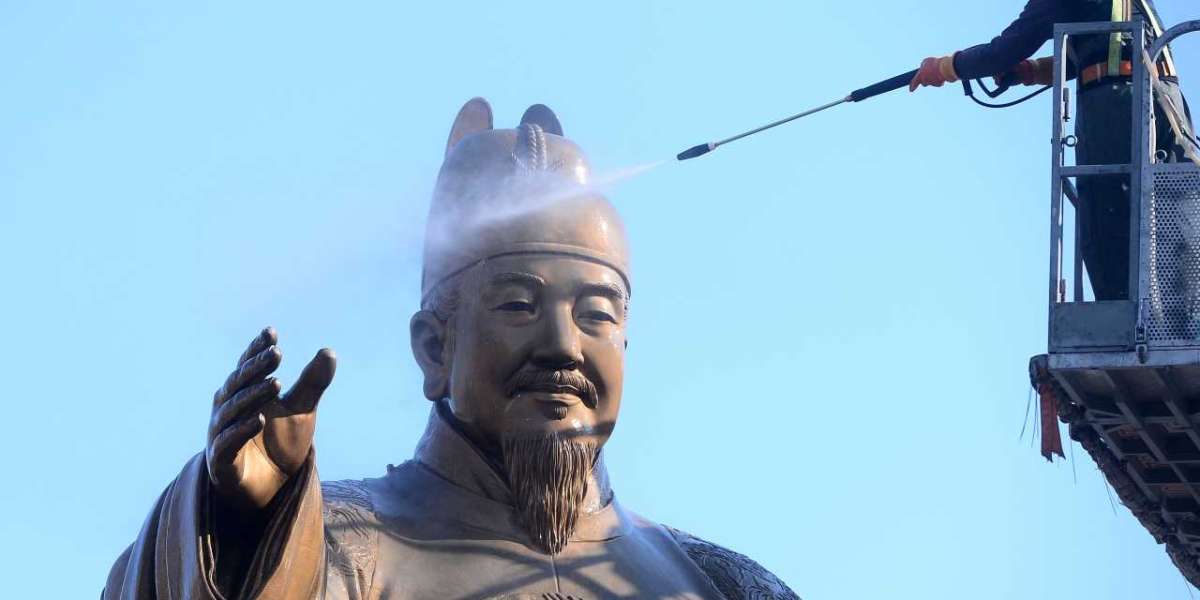A "jump defection" occurred in January when a North Korean defector ran back to the North after jumping over the heavily defended inter-Korean border fence. Many news outlets referred to the episode as a "jump defector."
Despite the fact that a comparable occurrence has occurred in the past, according to Google Trends, the word has just recently become widely used in the media. The term "gaslighting," which is loosely defined as the act of causing someone to question their reality by manipulating facts, saw a significant increase in usage early last year, according to the Google website, as the phrase began to gain widespread media exposure in Korea, particularly in the context of dating.
Years have passed since the English word "waiting" was first employed in South Korea's service industry. This is in spite of the presence of the Korean verb "gidarida," which means "to wait." In addition, the term "keeping" has been increasingly popular in recent years, alluding to the act of stores holding an item for the benefit of customers.
According to researcher Park Joo-Hwa at the National Institute of Korean Language, an institution affiliated with the Ministry of Culture, Sports, and Tourism, the pandemic has accelerated the trend, resulting in the introduction of a cluster of new loanwords related to COVID. "The pandemic has accelerated the trend, resulting in the introduction of a cluster of new loanwords related to COVID," Park said.
The usage of COVID-related jargon is becoming more popular, according to Park. "Terminologies that most people would not typically use are becoming more routinely utilized in the context of social distancing and testing," he explained.
As part of an effort to encourage the use of more Korean terms, the institute publishes a list of Korean equivalents to foreign loanwords on a regular basis, which is available here. In one recent list, phrases such as "pandemic," "epidemic," "drive-through," "travel bubble," and "long COVID" are included, to name a few examples.
"The term 'travel bubble,' for example, might be interpreted as jargon, and older people or children who do not speak English well may be unable to comprehend what travel bubbles are when they first hear them," she explained.
So, what is it about foreign loanwords, particularly English loanwords, that Koreans find so appealing?
Some terms make someone appear more 'learned,' while others make them appear less so, according to Jeffrey Holliday, an associate professor of Korean linguistics at Korea University who teaches an undergraduate course on Korean sociolinguistics.
'Speakers may control this, sometimes even subconsciously, in order to make oneself appear wiser in one environment while appearing more friendly or down-to-earth in another.
As personal trainers and fitness YouTubers have adopted the term "cheating day" to refer to a day off from a rigorous diet or workout routine in recent years, the phrase has gained popularity in the fitness industry as well.
"Moon Jae-in Care" refers to President Moon Jae-policy in's to increase national health insurance coverage, which has been utilized in official contexts by the presidential office since the proposal was first announced in 2017. Inspire by Obamacare, a colloquial moniker for the Affordable Care Act, which was brought into law by US President Barack Obama in 2010, the name was chosen.
I believe there are two main reasons for adopting English loanwords in Korea when we examine them: sometimes it is because they seem exotic or high-class, and other times it is because they are a good fit for the language." Another reason might be that using an English term permits the speaker to escape a bad connotation or mood conveyed by the similar Korean phrase or expression," he continued. "
The reason for this might be because, despite the fact that a similar Korean phrase or expression may exist, the English word may simply be shorter, and so viewed as more convenient by certain people. Additionally, a mixture of these factors might be at play."
However, there has been opposition to the extensive use of loanwords from linguistic puritans, notably the National Institute of Korean Language, which has expressed concern over the practice. One of the institute's primary responsibilities is to promote the usage of Korean terminology as opposed to foreign loanwords.
However, researcher Park stated that the institute's purpose has shifted from preserving the "purity" of the Korean language to addressing more practical challenges such as bridging language barriers across various generations and populations, among others.
"At the outset, our attempt to perfect the Korean language was intended to eliminate Japanese influence following the liberation of the country from Japanese control in 1945.
In light of the historical context, "a large number of individuals were on board at that time," Park explained.
However, the researcher stated that the emphasis has switched recently since recent loanwords — many of which are from Western languages, like English — have not been introduced by compulsion, as in the past.
"We are aware that some people believe that these loanwords are simply a reflection of the times — hence, rather than attempting to 'purify' the language, we are concentrating on guaranteeing easy communication."
According to Park, foreign loanwords might cause communication issues across different generations and socioeconomic groups.
It is possible that persons who are inexperienced with a certain sector of employment will not grasp jargon or loanwords when they are employed in official contexts or by the media.
According to Holliday, the adoption of English loanwords is also influenced by the cultural ties that exist between the United States and South Korea.
Despite the fact that Korea and China have strong cultural ties as well, he points out that these ties are more historical than modern, which helps explain why the vast majority of Chinese-origin loanwords in Korean are centuries old. The distinction, he believes, is that such phrases were introduced into Korean by scholars who were schooled in Chinese classics or Buddhist writings, rather than by young people of the period who were attempting to appear hip and fashionable.
It is necessary for a new English loanword to be adopted into Korea since the Korean speaker who accepted the loanword had to have acquired it from someplace, which implies they had to have consumed some media or had some interaction with an English speaker." This means that when a sufficient number of individuals interact with the language in some way, you will only obtain loanwords from that language."
While some are concerned about the influx of foreign loanwords into Korean, professor Holliday asserted that they are not "replacing" the native language's words.
"'Waiting' does not take the place of 'gidarida' in general, but solely in the context of a restaurant or service." Many people do not see it that way, but they may also be seen as contributing to the enrichment of the language."



